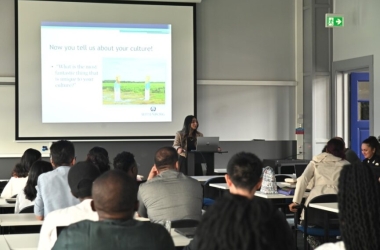Wittenborg Online News!
Wittenborg President Weighs in on Debate about Internationalisation
Wittenborg President Weighs in on Debate about Internationalisation
Wittenborg President Weighs in on Debate about Internationalisation

Peter Birdsall Highlights that Dutch Public Universities Need to Prepare for Restrictions
With the Dutch parliamentary elections approaching, one of the main topics being discussed on a daily basis in the country’s media and political scene is the number of international students in the Netherlands as well as the internationalisation of the Dutch education system. These debates have been fuelled up by the proposal for a new law which seeks to significantly limit the number of English-language higher education courses offered in the Netherlands’ public universities.
Recently, the current Minister of Education, Culture and Science of the Netherlands, Robbert Dijkgraaf, called on government-funded higher education institutions to come up with their own internationalisation plans. According to Dijkgraaf, regardless of the political orientation of the new cabinet that is formed, the rules concerning internationalisation could become much stricter than the rules he himself proposed. Therefore, Dutch universities need to prepare for this scenario.
The president of Wittenborg, Peter Birdsall, points out that the discussion on the number of international students in the country is connected to other trends such as the housing crisis and the increasing numbers of refugees and foreign workers in the Netherlands.
“Given the many ongoing conflicts in the world, it is unlikely that the number of refugees coming to the Netherlands will diminish. And, when it comes to foreign workers, the politicians can make the immigration laws stricter for those who are from outside of the European Union, but it is difficult to restrict the coming of EU citizens, who are the largest group of migrants. So, the easiest ‘target’ is international students, who in their majority come from other EU countries. The simplest way to reduce their numbers is to force the universities to teach in Dutch, and that is what this new law is about,” he says.
Highlighting that Wittenborg is not going to be affected by the proposed legislation, because it is a privately funded business school, Birdsall comments that it will be interesting to see how Dutch public universities react to these possible changes. If approved, the new law is supposed to come into force in September 2024.
“It will be interesting to see if public universities will pick up on this concept of writing a strategic plan for internationalisation, and to see whether they come up with good ideas or not. For us at Wittenborg it has been relatively easy, because we are small and compact, but these big institutions have lots of faculties and schools, so it will be more challenging for them. And of course, there are different sorts of schools, and the technology universities, for instance, will certainly be deeply affected because they rely so much on English-language content.”
Birdsall stresses that Wittenborg started as a Dutch-language college in 1987, and only transitioned to being an international university of applied sciences in 2008 after he and CEO Maggie Feng took over management of the school.
“We accredited our first international programme, the Bachelor of Business Administration (BBA), in 2006. And then, two years later, we decided to close down all the Dutch-language programmes. Initially, our policies, documentation and credits were aligned with the accreditation. But after the school moved to Apeldoorn, in 2010, we started really documenting a lot of things and writing our first strategic plan. So, we grew organically into what we are today. We have always striven to be truly international, balancing the numbers of students and having people from multiple countries attending our programmes, not just one or two nationalities.”
Nevertheless, the president of Wittenborg points out that the institution might be affected if the Dutch government makes immigration laws stricter for international students coming from outside of the EU.
“Some of these politicians have a very inward-looking perspective, but ultimately their ideas are not feasible. If immigration and internationalisation are really restricted in the Netherlands, the risk is that there will be a lack of motivated and skilled workers, as well as talent and intellect coming to the country. Personally, I don’t think it is going to work,” he concludes.
WUP 11/11/2023
by Ulisses Sawczuk
©WUAS Press
701 words